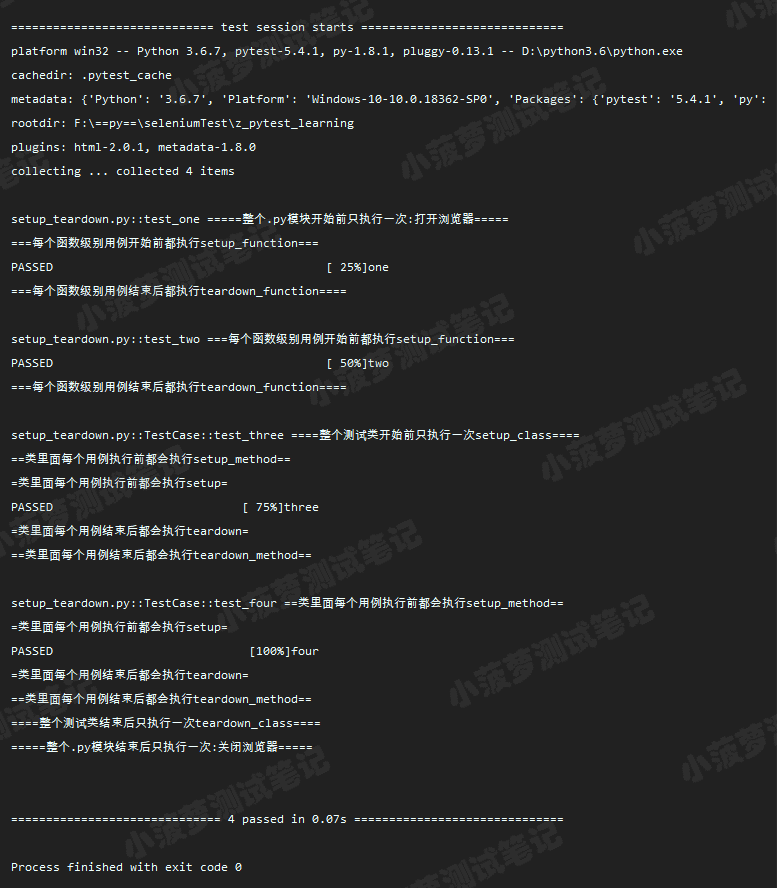1. 前言
用过unittest的童鞋都知道,有两个前置方法,两个后置方法;分别是
- setup()
- setupClass()
- teardown()
- teardownClass()
Pytest也贴心的提供了类似setup、teardown的方法,并且还超过四个,一共有十种
- 模块级别:setup_module、teardown_module
- 函数级别:setup_function、teardown_function,不在类中的方法
- 类级别:setup_class、teardown_class
- 方法级别:setup_method、teardown_method
- 方法细化级别:setup、teardown
2. 代码
用过 unittest 的童鞋,对这个前置、后置方法应该不陌生了,我们直接来看代码和运行结果
#!/usr/bin/env python# -*- coding: utf-8 -*-"""__title__ =__Time__ = 2020-04-06 11:40__Author__ = 小菠萝测试笔记__Blog__ = https://www.cnblogs.com/poloyy/"""import pytestdef setup_module():print("=====整个.py模块开始前只执行一次:打开浏览器=====")def teardown_module():print("=====整个.py模块结束后只执行一次:关闭浏览器=====")def setup_function():print("===每个函数级别用例开始前都执行setup_function===")def teardown_function():print("===每个函数级别用例结束后都执行teardown_function====")def test_one():print("one")def test_two():print("two")class TestCase():def setup_class(self):print("====整个测试类开始前只执行一次setup_class====")def teardown_class(self):print("====整个测试类结束后只执行一次teardown_class====")def setup_method(self):print("==类里面每个用例执行前都会执行setup_method==")def teardown_method(self):print("==类里面每个用例结束后都会执行teardown_method==")def setup(self):print("=类里面每个用例执行前都会执行setup=")def teardown(self):print("=类里面每个用例结束后都会执行teardown=")def test_three(self):print("three")def test_four(self):print("four")if __name__ == '__main__':pytest.main(["-q", "-s", "-ra", "setup_teardown.py"])
2. 执行结果


